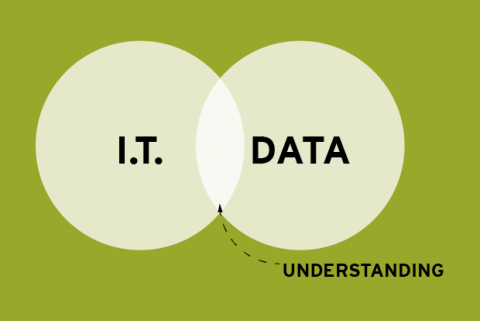Should an IT executive see him or herself in a broader role thanks to big data? Recent research suggests a multitude of roles, each of which plays its own part in running a successful enterprise.
I see several roles, but within a broader sea change in IT. Where in the past an IT executive would simply serve the business requirements, success today requires anticipating them. That means not just delivering what internal customers are asking for, but going beyond their top-of-mind questions with data-driven insights. Crowdsourced, social and other third-party data can drive these additional questions, and line of business executives may not be leveraging them in their daily work. That’s why you may find yourself playing any or all of these roles in IT, depending on the day:
1. Data Agent. This role involves corroborating or co-relating all the data coming into the enterprise and suggesting ways to find actionable insights in it. It also means understanding the inefficiencies inherent in data capture and boosting efficiencies in processing that data. Remember, too, that you can have all the data in the world and not make the most of it. So are you trying to make a few big decisions or many small ones? The rules of demand and supply extend to your own time and dictate that you choose your battles strategically.
2. Product Manager. This dimension includes considering what the business decision is that you’re trying to make using the data at hand. If you think of yourself as enabling and evolving a current product line, what data gaps exist that should be filled to make better product decisions? This is always a valuable perspective.
3. Data Scientist. Taking on this role almost qualifies you for an instant raise based on today’s shortages, but my point here is that some of the skills data scientists are prized for doesn’t require a Math PhD. In my experience, surfacing insights is as much a combination of curiosity, research smarts, and business acumen as it is the ability to focus on quantitative decisions all day. In the entertainment industry, at least, the tolerance for slight inaccuracies about a trend or artist is higher than a medical or health sciences company might be.
4. Master Data Manager. I’ve heard a lot of talk that master data management – the standards that give you a single informational point of reference for critical business terms like ‘customer’ and ‘prospect’ – isn’t really required in the big data world. I disagree. Unless you act as a force for a consistent understanding of your data, both where it originates and what it means, you will waste a lot of time trying to compensate for the gaps in understanding and trying to wrest control over your data. Unless your job allows you to get the right navigational frame on the velocity, variety and volume of data relevant to your business, how can you have governance? Big data doesn’t require surgery, but it does require triage, and MDM provides that framework.
There are many other roles relative to big data, I’m sure, but it’s important to remember that big data projects are not about seeking perfection. They tend not to go on for nine months or a year and don’t have to deliver insights that will change the direction of your enterprise. Sometimes you’re only seeking attribution for the marketing dollars you’ve put behind a brand (which in entertainment industry is often a musical artist, actor, movie or release). Sometimes you’re laying plans to disrupt an entire product life cycle in your favor. Whatever it is, mastering big data takes a great team – and these days you will likely be tasked to act as more than one member of that team.
ALSO READ
Scott Koegler's interview with Dan Pickett, CEO of networking infrastructure experts nfrastructure.com, about how he sees several areas that make a difference between simply collecting data and attaining meaningful ROI from big data efforts.
Rajesh Wunnava, is a product and technology executive. As a senior business technology strategist, Rajesh has worked/consulted for marquee companies such as Procter & Gamble, Warner Music, J Walter Thompson/Mindshare and Unilever, and has a successful track record in leading and delivering business and revenue transformation projects.




